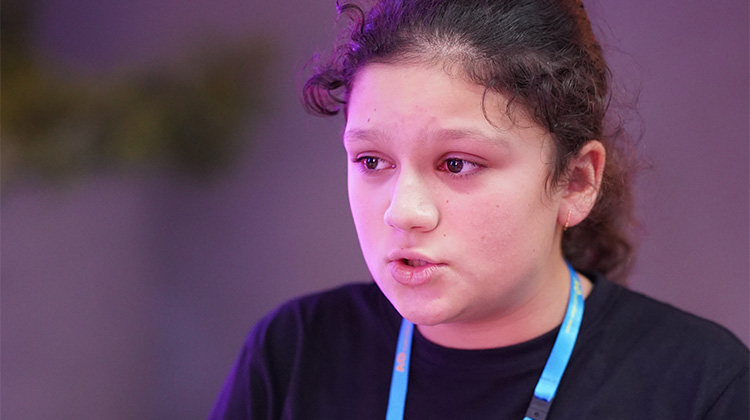Bright young tech minds uncovered

A recent innovation challenge run by Mastercard sought to find the brightest young tech minds in the country and it looks like the quest was successful with Celia, 12, from Western Australia winning with a digital program called ‘HoloTeach’ – a holographic educational program targeted at remote and rural communities.
On accepting the prize Celia said: “I’ve had the best time taking on this innovation challenge. I’ve used my love for technology to come up with an idea that would give children everywhere the chance to have a good education. For children in remote areas, it can be hard to access the right learning and education tools. Holo-Teach hopes to change that. I’ve enjoyed coming up with the invention so much.”
The other finalists were Nikolas, 12, from Sydney and Isobel, 7, from Victoria. Nikolas designed a soft toy that can detect anxiety in kids and help alleviate it by playing music and giving them advice such as breathing exercises.
His interests currently include programming and building robots and fighting them against his friends’ builds, he’s a big fan of Elon Musk and eventually Nikolas sees himself being involved in Mars missions.
Isobel believes that technology has the power to help others, inspiring her to develop an app that can locate and feed homeless people.
You get the idea though, the entries were empathetic, multi-disciplinary and creative and displayed a comfort level and integration with technology that earmarks Gen Z.
Isobel, Celia and Nikolas pitched their idea to a panel of experts, including Rich Wormald, Division President, Australasia, Mastercard and professional tennis coach Darren Cahill, at Mastercard’s Innovation Hub at the Australian Open.
Celia and her class will receive a STEM innovation camp, visiting Mastercard’s Tech Hub in Sydney and the runners-up will receive a tennis experience including a masterclass with Darren Cahill.
Mastercard’s Sydney Tech Hub is the largest facility of its type in the Asia Pacific, and one of six around the world and it's the kind of place that Celia, Nikolas and Isobel will possibly end up working.
Mastercard is a very different beast to the credit card company of a few years ago and a visit to the hub will expose the kids to the red hot, super-fast paced fintech area. Teams of technologists at the hub are given problems to solve and that’s resulted in some technology advances that now underpin daily life in Sydney and elsewhere.
Taken public transport in Sydney recently? Most likely you’ve paid for it through a system designed at Mastercard, maybe you’re looking for an alternative to Afterpay for those online purchases, bundll gives you opportunity to combine your online purchases into one and pay off that sum. These are just a couple of innovations out of Mastercard’s Tech Hubs.
“The Tech Hubs are where we solve technology problems with customers, we put a dedicated team onto the problem for a week and at the end of the week we come up with a fully functional prototype, a business case, even a marketing video. It’s designed to accelerate the first six months of a project into one week.
“The team's members [software engineers, developers] role is to take the prototype and build it as fast as they can. We’re starting to take locally developed ideas and export them around the world,” says Wormald.
The company has been involved in the STEAM area for a while now most prominently with its Girls4Tech program, an educational platform for girls aged 8 to 12 that has already reached more than 415,000 girls across 25 countries. Mastercard recently expanded its commitment to reach one million girls globally.